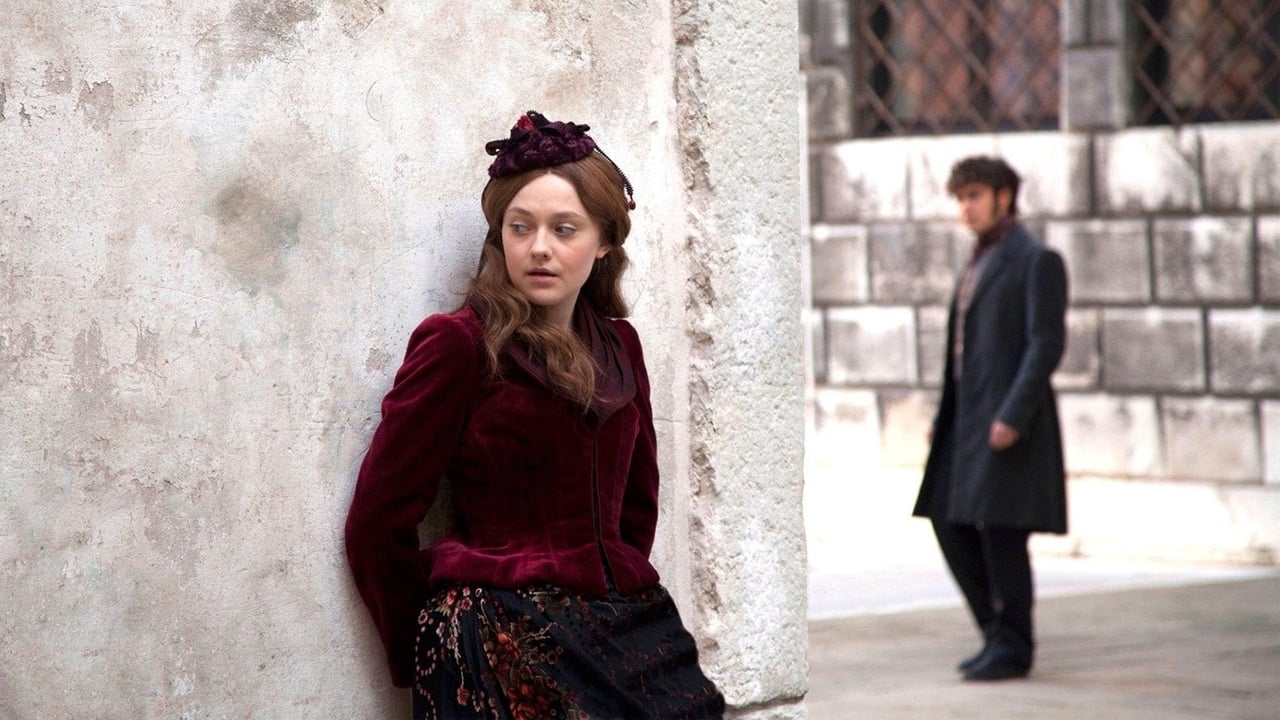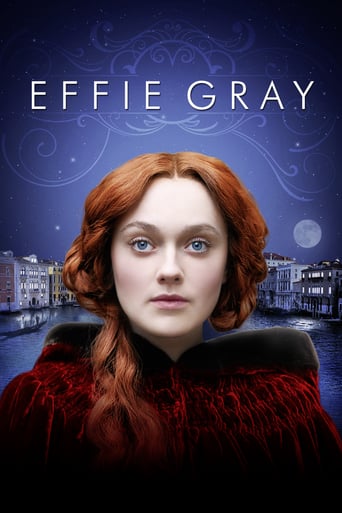

This movie is a beautiful story about a young woman and her failure to thrive when imprisoned as a house pet.I was surprised to read the negative reviews, but I believe they are written from people who do not accept the idea that women love sex, women want a full marriage, and a woman has a right to her own body. Those are very modern ideas! The women's revolution was a long time coming in this world, and it's far from over. Most of history never allowed her to have a voice. That is just the facts.I loved the way the movie was done and Dakota Fanning was perfect. Emma Thompson was superb, and she wrote it! Well done!
... View MoreI was looking forward to this film having heard a play on radio about Ruskin and Effie, but didn't know the full story.Unfortunately the opening scenes weren't promising, with some wooden acting from the actress playing Effie (why not cast a British actress? A stilted false accent obviously affected her performance) Also. the actor playing Ruskin has one expression and one tone of voice throughout the film.It doesn't get much better and carries on slowly, dull and boring with slow, boring performances from most of the cast (with the exception of David Suchet).There are a few things unexplained: what was the medicine Ruskin's mother gave Effie that made her sleepy/ ill? And why did she give it? Why did Ruskin senior say to Ruskin, we warned you about that girl yet you married her? Why did the Ruskins seem unhappy at the Eastlakes visit?It actually picks up towards the very end (yes, I kept watching) when Effie confides in Lady Eastlake (a very orange and tanned Ms Thompson - completely wrong look for the time). And things finally move on. This is about 15 minutes before the end. The story should have started here and continued with her next marriage. Apparently the film had a huge budget (spent on what?) and recouped a mere fraction. I'm not surprised. The poor acting and script lets it down. A poor example of British film making.
... View MoreThis is a film treated with the delicacy that the real circumstances must have required. Effie Gray, based on the true story of a teenager who marries John Ruskin (grown man and well-known author), comes to realize that she and her husband have varying expectations of marriage. She slowly begins to fade away as she makes all appearances of following the rules of her new, married life.The movie is well-paced, quiet, and stylistically appropriate. Dakota Fanning does a wonderful job of portraying Effie's quiet despair, and you do forget that she is an American actor (her accent is good). Derek Jacobi makes a guest turn, towards the end, and, It's always a pleasure to see Emma Thompson in anything, let alone in a vehicle for a screenplay that she has written.Well worth seeing.
... View MoreGreat Masterpiece Theatre costumes, characters, and setting, but the whole this is a slow motion bore.It's obvious from almost the beginning that the domineering parents don't like Effie. Nothing new about this plot -- been there and done that. Then we learn that something is clearly wrong with Ruskin, the mama's boy, who won't have sex with his wife.This story line goes on for an hour or so, and then we are introduced to a painter who captures Effie's heart -- now it's another version of the Forsyte Saga -- but we don't actually see any love scene.Then Effie finally goes to the lawyer and finds out she can get an annulment, and the movie essentially ends with the lawyer serving the divorce papers.We looked this up in Wikipedia. The story as presented in the movie is essentially true and accurate, but the "real" story goes on to a public scandal over this divorce with the re-marriage to the painter.The summary on IMDb indicates this will be about this "scandalous" love triangle. We learn for the first hour about two sides of the triangle, and we meet the third side in the second hour, but nothing about the scandal. This could have been a great movie with lawyers fighting in court, newspapers chasing Ruskin, etc. Instead, Emman Thompson simply wrote a screenplay that strips this historic episode of any dramatic interest.In the small art theater where we saw this, my wife and I were the only ones in the audience. The projectionist was just about ready to lock the door and go home. After see this move, we understand why.
... View More